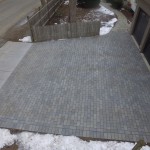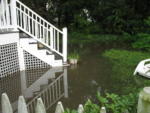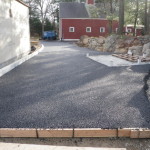
By Anne-Marie Lambert Most Belmont driveways are impervious surfaces, and they make local flooding and water pollution worse—but that doesn’t have to be the case. When a driveway is made of asphalt or concrete, rainfall flows quickly to catch basins, erodes soil along the way, and increases pollution and flooding risks in downstream neighborhoods. Water that soaks into the soil doesn’t have any of these effects. More and more homeowners are taking advantage of today’s porous paver technologies in order to allow the soil to soak up rain before it reaches our catch basins and waterways. Plus, the pavers can [READ MORE]



